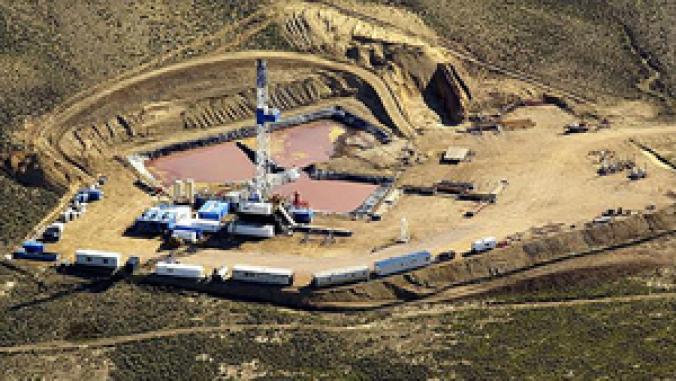Green Investment Lessons from the Prophet of Sinking Societies
<p>Pulitzer Prize-winning author Jared Diamond believes investors should view a dozen dire challenges facing humanity -- including climate change, low-cost energy and soil depletion -- as money-making opportunities they need not apologize for.</p>

Jared Diamond's acclaimed book, "Collapse," chronicled the demise of simple and advanced civilizations alike -- the deforestation that ravaged Easter Island, the soil and water depletion that undid the Mayans, the drought and overpopulation of New Mexico's Anasazi Indians.
So what is Diamond's take on threats facing society today, and what lessons are there for 250 hardheaded investors at Deutsche Bank, who gathered Monday in New York to hear Diamond and other experts discuss climate change and other sustainability challenges?
There is opportunity in the bad.
The Pulitzer Prize-winning author rattled off a dozen dire challenges facing humanity, including climate change, soil depletion, water constraints, threatened fisheries and low-cost energy. Each of these threats, he said, could single-handedly trigger the dreaded "C" word: collapse. "If we solve 11 of 12 of these problems, but we don't solve water, we'll be finished," Diamond said.
And he was quick to remind the investors that these threats are absolutely relevant to their jobs. In fact, the way they direct their money may even help save the planet.
"This is a money-making opportunity you need not apologize for," he said.
Diamond said all civilizations that collapse go through three stages of failure: the failure to anticipate a problem; the failure to respond to a problem once it is recognized; and the failure of group decision-makers to deal with problems, even after their harmful impacts are apparent.
Diamond said the final stage is "perhaps, the most puzzling one," and he used climate change to make his point. Noting that five of the warmest years on record have come in the past decade, he asked, "Why are there still people who are not convinced about this, including people in important positions?"
Two answers, he says, are the conflicts of interest between short- and long-term strategies, and the conflicts of interest between those making the problem and those being hurt by it. Diamond says there is no mistaking these conflicts today.
He chided BP for taking reckless short cuts in managing its offshore oil rigs and Wall Street for excessive risk taking that doesn't account for the colossal economic downsides of gigantic disasters, whether a spate of extreme hurricanes or pervasive high-risk subprime lending.
To counter such myopia, Diamond suggested that investors consider the Peruvian peasants who have lived for thousands of years by fragmenting their farmland into tiny splintered plots with diverse crops. When outsider agriculture experts told the peasants they should consolidate their fields for one high-profit crop, they resisted -- and for good reason, Diamond said.
"If you had one big field, the certainty over 20 years is that in one or two of those years, you'll lose your entire crop," Diamond said. "They sacrificed (short-term profits) so that each year there was enough yield so that nobody would starve."
Somewhat surprisingly, Diamond's gloomy perspective got a warm reception from the well-heeled, Blackberry-toting audience.
One investor praised his book and said it prompted him to question our society's orientation towards constant economic growth requiring more and more resource inputs. Diamond said the remark was dead-on: "It's inevitable that consumption rates in the developed world will have to decline," he said, noting that Americans have the farthest to go here.
Another banker questioned Diamond's efforts to remain optimistic, both in his writings and public speeches, that these problems can be solved. "It was the weakest part of the book," the banker said.
Diamond conceded he gets pessimistic, but also takes heart at the progress he sees, such as the victories like eradicating smog pollution in Los Angeles and increasing big-business support in the U.S. for strong carbon-reducing measures.
Let's hope Diamond's inspiration spreads quickly -- across Wall Street and the rest of our ever-crowded world.
Mindy Lubber is president of Ceres, a leading coalition of investors and environmental groups working with companies to address sustainability challenges such as climate change. This article originally appeared at Huffington Post.





